To provide the best experiences, we use technologies like cookies to store and/or access device information. Consenting to these technologies will allow us to process data such as browsing behaviour or unique IDs on this site. Not consenting or withdrawing consent, may adversely affect certain features and functions.
The technical storage or access is strictly necessary for the legitimate purpose of enabling the use of a specific service explicitly requested by the subscriber or user, or for the sole purpose of carrying out the transmission of a communication over an electronic communications network.
The technical storage or access is necessary for the legitimate purpose of storing preferences that are not requested by the subscriber or user.
The technical storage or access that is used exclusively for statistical purposes.
The technical storage or access that is used exclusively for anonymous statistical purposes. Without a subpoena, voluntary compliance on the part of your Internet Service Provider, or additional records from a third party, information stored or retrieved for this purpose alone cannot usually be used to identify you.
The technical storage or access is required to create user profiles to send advertising, or to track the user on a website or across several websites for similar marketing purposes.
 WiredScore, is announcing the launch of a new certification for smart buildings aimed at providing clarity, definition and measurement for the growing smart building industry. SmartScore certification was developed in response to increasing demand for guidance around what ‘smart’ really means in relation to commercial buildings, and how it can and should be implemented. (more…)
WiredScore, is announcing the launch of a new certification for smart buildings aimed at providing clarity, definition and measurement for the growing smart building industry. SmartScore certification was developed in response to increasing demand for guidance around what ‘smart’ really means in relation to commercial buildings, and how it can and should be implemented. (more…)





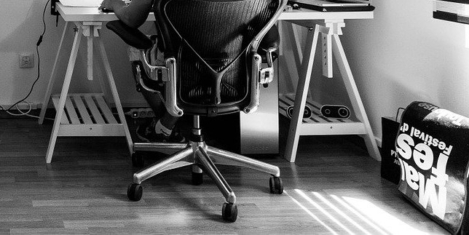
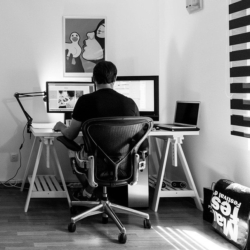 Research commissioned by
Research commissioned by 
 Employees would worry about the security of their job if they were to report suffering an injury in the workplace, claims new research carried out by
Employees would worry about the security of their job if they were to report suffering an injury in the workplace, claims new research carried out by 

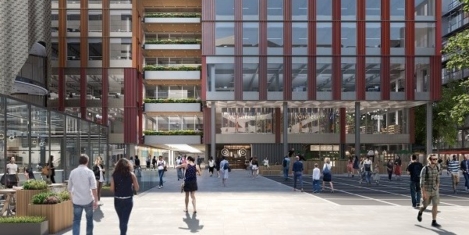
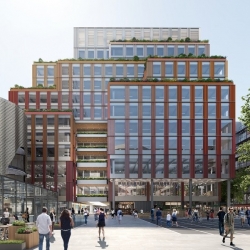 British Land has announced that JLL has chosen 1 Broadgate for its new UK flagship office. JLL, the global real estate services firm, has signed an agreement for lease for 134,000 sq ft on a 15 year term, representing a pre-let of nearly a third of the office space.
British Land has announced that JLL has chosen 1 Broadgate for its new UK flagship office. JLL, the global real estate services firm, has signed an agreement for lease for 134,000 sq ft on a 15 year term, representing a pre-let of nearly a third of the office space. 
 Workers across the UK could return to offices faster than anticipated, according to a new RICS survey of facilities managers. According to the poll, a growing number of respondents say that up to 80 percent of employees will head back once the pandemic is resolved. This is up from less than 60 percent expected in the same poll from the previous quarter ending November 2020. As evidence suggests the UK vaccination programme is taking hold across the country, results to the
Workers across the UK could return to offices faster than anticipated, according to a new RICS survey of facilities managers. According to the poll, a growing number of respondents say that up to 80 percent of employees will head back once the pandemic is resolved. This is up from less than 60 percent expected in the same poll from the previous quarter ending November 2020. As evidence suggests the UK vaccination programme is taking hold across the country, results to the 
 Research by VINCI Facilities claims that the UK facilities management sector does not possess a thorough, detailed strategic approach to combatting climate change. In the autumn of 2020
Research by VINCI Facilities claims that the UK facilities management sector does not possess a thorough, detailed strategic approach to combatting climate change. In the autumn of 2020 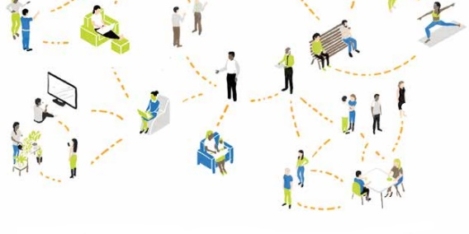
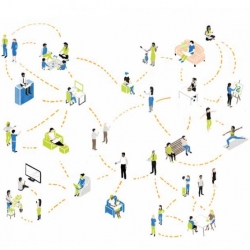 As lockdown restrictions are eased and employees head back to the office a new report is calling for businesses to reinvent the world of work. The Human Organisation report highlights how the current workplace model is based on bureaucracy and hierarchy, which stifles employee empowerment and creativity.
As lockdown restrictions are eased and employees head back to the office a new report is calling for businesses to reinvent the world of work. The Human Organisation report highlights how the current workplace model is based on bureaucracy and hierarchy, which stifles employee empowerment and creativity. 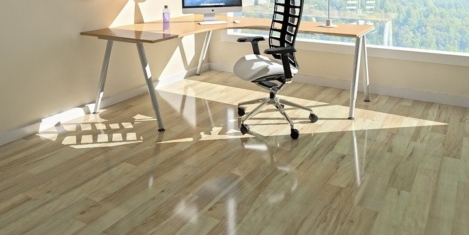
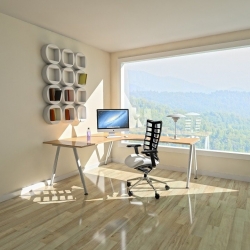 New research by environmental charity
New research by environmental charity 
 A new report from KPMG suggests that half of major corporations do not expect to see a return to any sort of ‘normality’ until 2022 when half of the general population has been vaccinated. The report also claims that there has been a steep decline in the appetite of the global executives who took part in the survey for office downsizing as the firms reconsider the need for in-person business to resume when countries emerge from the pandemic.
A new report from KPMG suggests that half of major corporations do not expect to see a return to any sort of ‘normality’ until 2022 when half of the general population has been vaccinated. The report also claims that there has been a steep decline in the appetite of the global executives who took part in the survey for office downsizing as the firms reconsider the need for in-person business to resume when countries emerge from the pandemic. 
 The
The 







April 14, 2021
The digital world is not necessarily greener than the physical world
by Neil Franklin • Comment, Environment, Technology